The Association for the Development of Education in Africa (ADEA), through its Working Group on Books and Learning Materials (WGBLM), teamed up with the Global Book Alliance (GBA) to dialogue with African book industry stakeholders about publishing and use of materials in mother-tongue languages, and to come up with a way forward.
Search the site
With funding from the William and Flora Hewlett Foundation, and as part of its work on the early literacy ecosystem and open licensing, Neil Butcher & Associates (NBA) is conducting research into the successful sharing of alternative content creation and distribution models that harness open licensing.
With funding from the William and Flora Hewlett Foundation, and as part of its work on the early literacy ecosystem and open licensing, Neil Butcher & Associates (NBA) convened a small workshop, which brought together key players in early literacy in Africa.
Open Licensing and Publishing in Africa: What is open licensing and why is it topical to authors, publishers and illustrators? This presentation was created for the Association for the Development in Africa (ADEA) and Global Book Alliance Seminar on Open Licensing in Accra, Ghana on 2 September, 2018.
Openly licensed resources are ‘free’ to access, but there can be significant user, creation, adaptation, and production costs. The long-term sustainability of African publishing in local languages requires that these costs be met fairly and completely, using models that will encourage people to establish, grow, and sustain excellent content creation organizations.
Pragmatic Approaches to Open Licensing: Is revenue generation possible? This presentation was created for the Association for the Development in Africa (ADEA) and Global Book Alliance Seminar on Open Licensing in Accra, Ghana on 2 September, 2018.
These best practice quality recommendations for children’s books are a product of the public-private partnership of the REACH Project. They are intended for use by publishers during book creation, development, and production, as well as by purchasers and librarians for collection development.
If you are planning to translate a storybook from one language to another, then these recommendations are for you. They offer helpful ideas on how to ensure the final story in the new language is high quality. A high-quality translation is one that was not necessarily translated word-for-word, but that retains the meaning and sensibility of the original story in the new language.
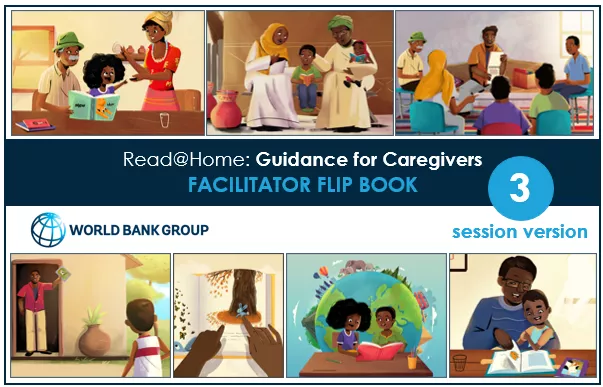

This flip book is designed to be used over three meetings with caregivers, with content divided into three sessions.
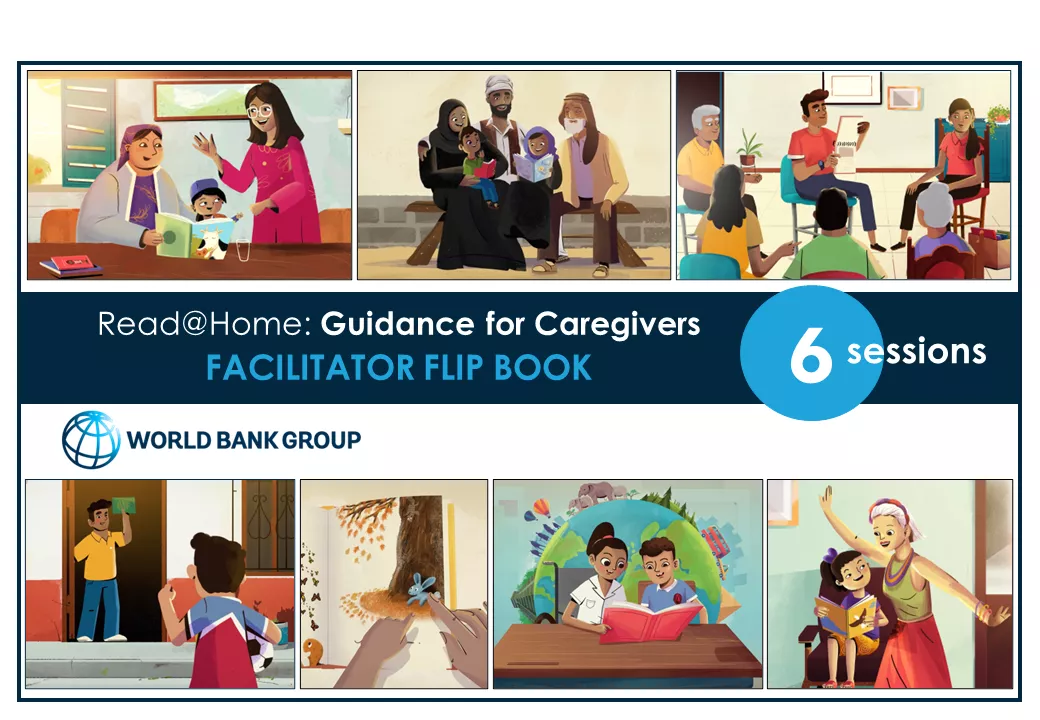

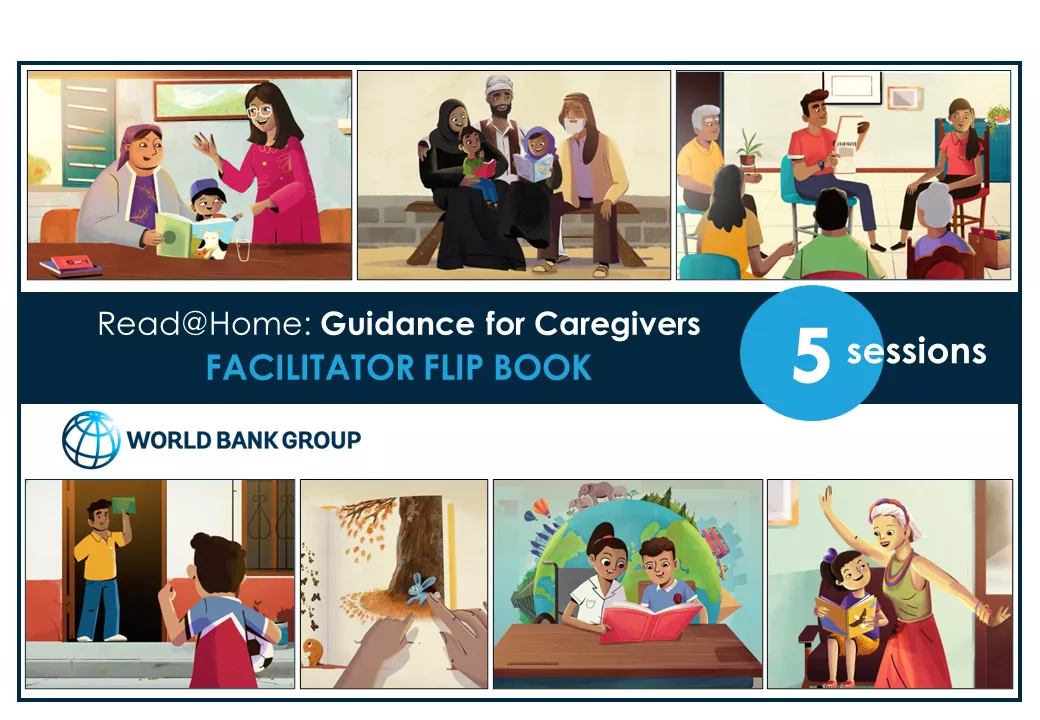

This manual aims to provide practical guidance on the identification and selection of quality children’s reading materials for home use, and the identification or design of accompanying materials for caregivers to support children’s learning. The manual is part of the Read@Home initiative, which aims to deliver reading and learning materials to hard-to-reach homes.
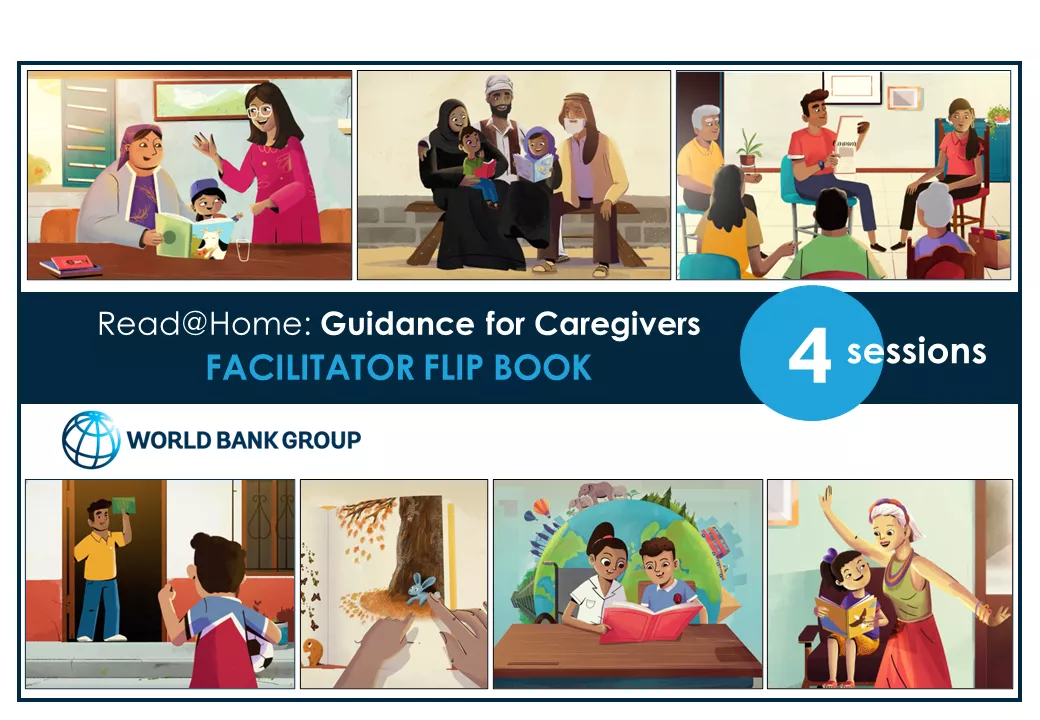

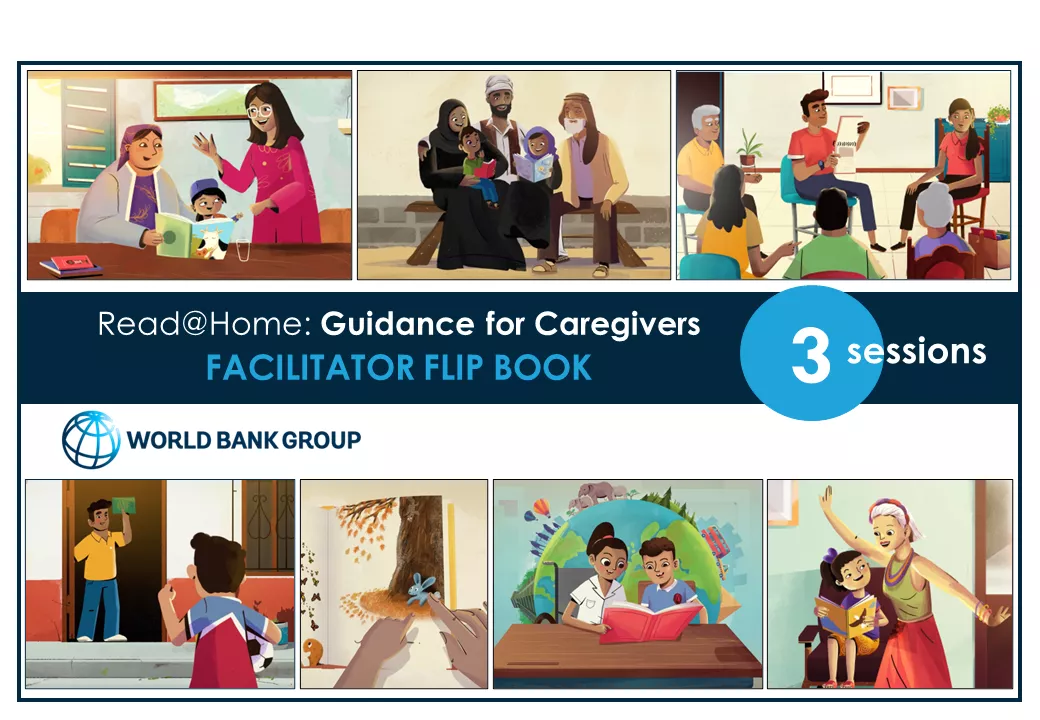

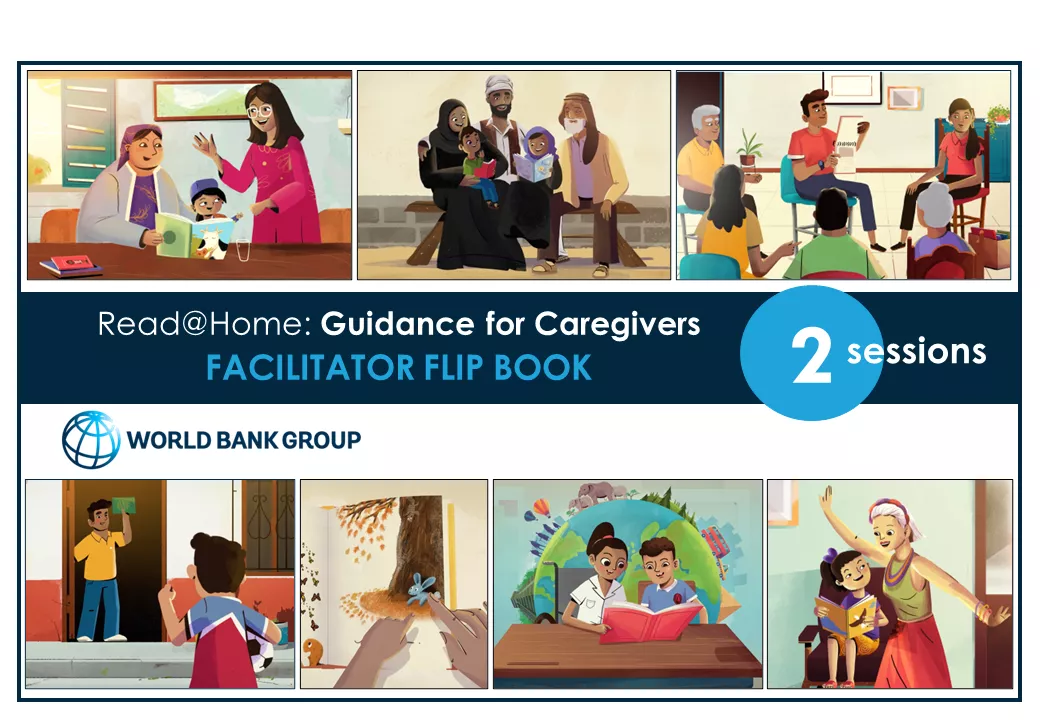

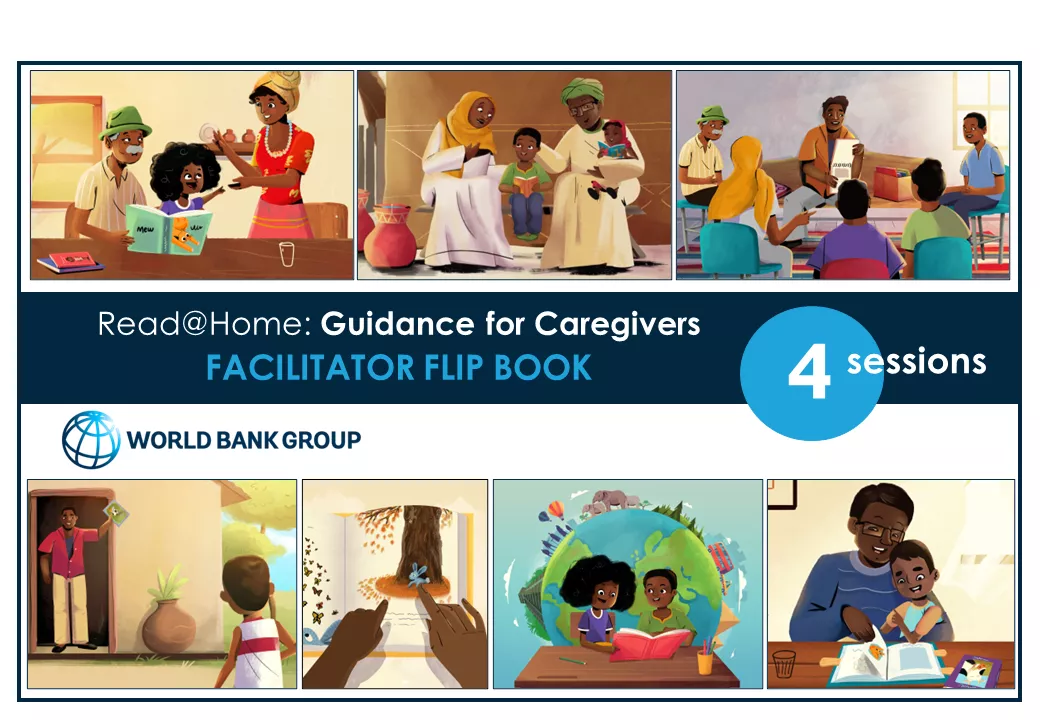

This flip book is designed to be used over three meetings with caregivers, with content divided into four sessions.
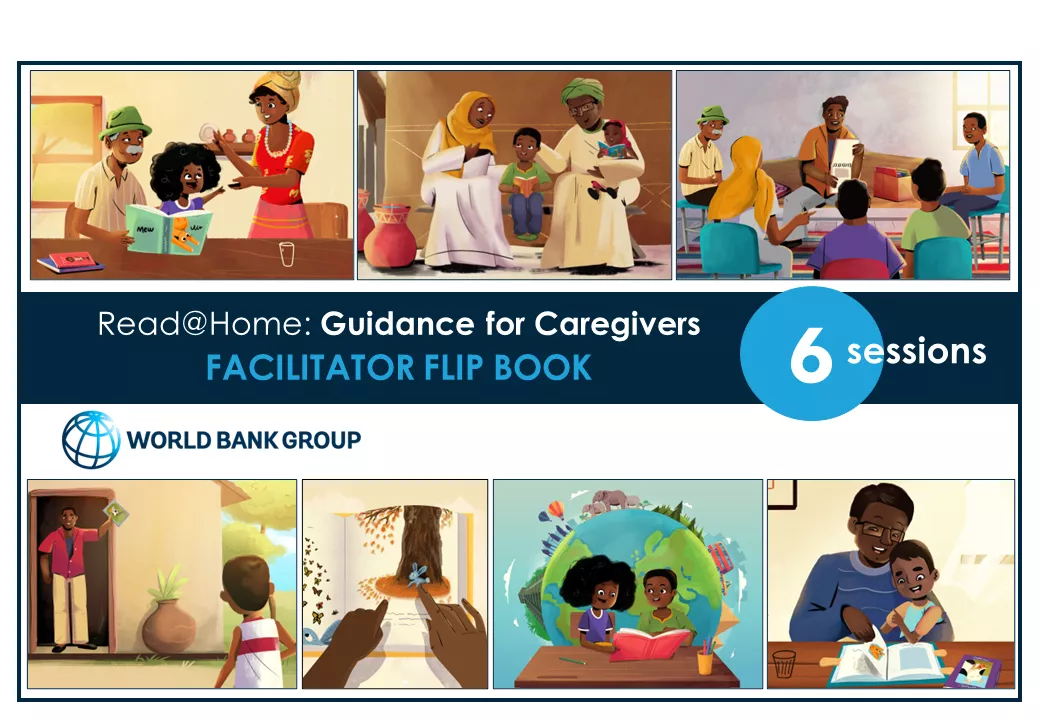

This Guide to Open Licensing in World Bank Projects provides an explanation of open licensing and how to use it in World Bank and other development projects to increase access to high-quality teaching and learning materials, including textbooks and storybooks.
The African Library and Information Associations and Institutions (AfLIA) and NBA developed a short online course for African librarians and library staff, based on the findings of a survey conducted in 2021. The main course objectives were to:




